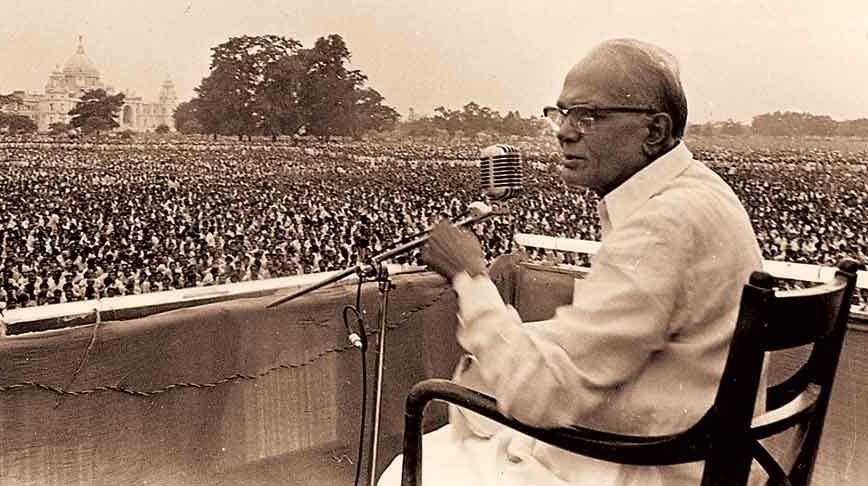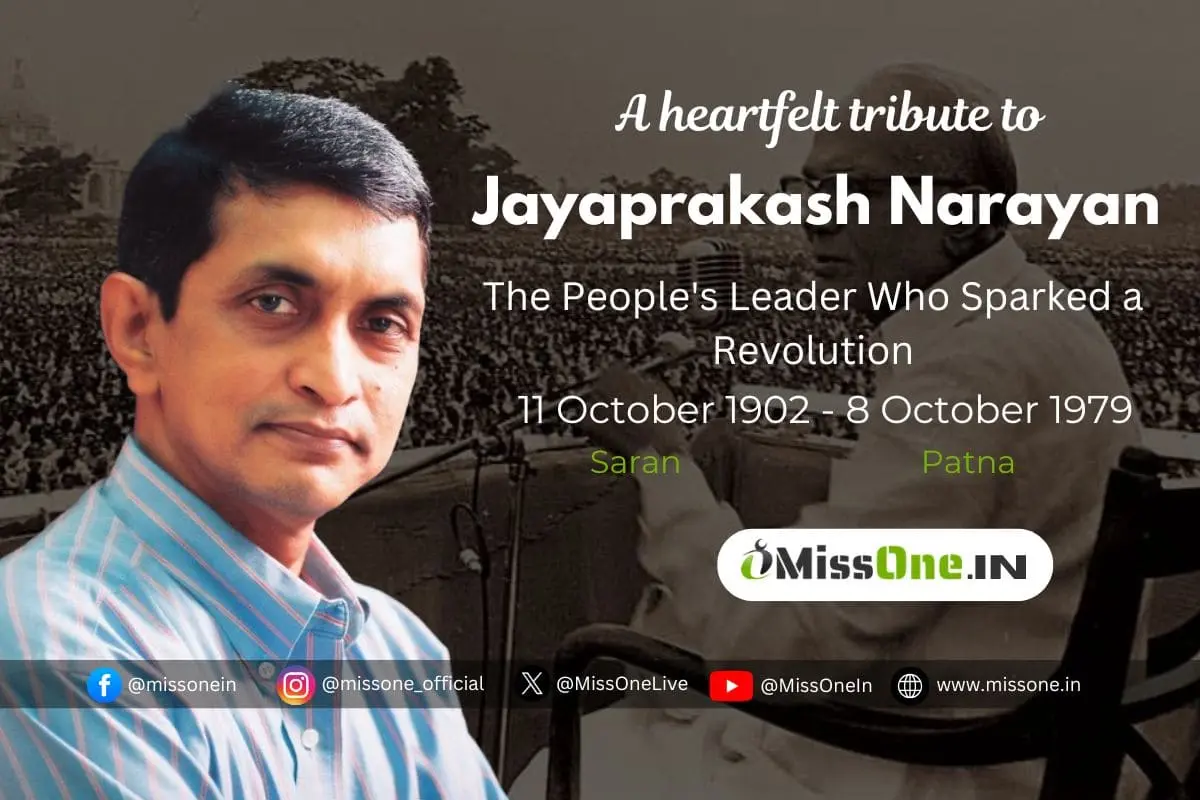In the annals of Indian history, few names resonate as profoundly as Jayaprakash Narayan. Born on October 11, 1902, in Sitab Diara, Bihar, he emerged as a beacon of hope and change for millions. Fondly known as ‘JP’ or ‘Lok Nayak’ (People’s Leader), his life journey is a testament to unwavering commitment, courage, and a relentless pursuit of justice. This blog delves into the life of Jayaprakash Narayan, celebrating his contributions and reflecting on his enduring legacy.
Early Life and Education: Foundations of a Revolutionary
Jayaprakash Narayan was born into a modest family in Sitab Diara, a village straddling the border of Uttar Pradesh and Bihar. His father, Harsu Dayal, was a school teacher, and his mother, Phul Rani Devi, was a homemaker. From a young age, JP exhibited a keen interest in literature and social issues.
At 17, he married Prabhavati Devi, a fellow freedom fighter and a woman of strong convictions. Their partnership was built on mutual respect and shared ideals. In 1922, JP traveled to the United States to pursue higher education. He studied at the University of Wisconsin and later at Ohio State University, where he earned a degree in behavioral science. His time abroad exposed him to Western political thought, which he later synthesized with Gandhian principles to form his unique ideology.
The Freedom Struggle: A Gandhian Revolutionary
Inspired by Mahatma Gandhi’s call for non-violent resistance, JP returned to India in 1929 and joined the Indian National Congress. He became an active participant in the Quit India Movement of 1942, leading protests and enduring imprisonment. His commitment to Gandhian principles was evident in his approach to activism, emphasizing non-violence, self-reliance, and rural development.
During the post-independence era, JP continued to advocate for social justice. He was instrumental in the Bhoodan (land gift) movement, initiated by Vinoba Bhave, aiming to persuade landowners to voluntarily donate land to the landless. JP’s involvement in these movements showcased his dedication to uplifting the marginalized sections of society.

The 1975 Movement: A Fight for Democracy
The mid-1970s witnessed a significant political upheaval in India. Prime Minister Indira Gandhi declared a state of emergency in 1975, citing internal disturbances. This move led to widespread arrests, censorship, and a suspension of democratic processes.
In response, Jayaprakash Narayan launched the ‘Total Revolution’ movement, calling for a nationwide struggle against corruption, authoritarianism, and the erosion of democratic values. He led the Bihar Movement, which began as a student protest against the state government’s mismanagement and corruption. The movement quickly gained momentum, with JP at the forefront, advocating for systemic change.
Despite facing immense challenges, including imprisonment and government repression, JP’s resolve remained unshaken. His leadership during this period galvanized the nation and played a pivotal role in the eventual downfall of the Emergency regime.
Legacy and Recognition: Honoring a People’s Leader
Jayaprakash Narayan’s contributions to India’s democratic fabric are immeasurable. In 1999, two decades after his death, he was posthumously awarded the Bharat Ratna, India’s highest civilian honor, for his exceptional service to the nation. His legacy continues to inspire countless individuals committed to social justice and democratic values.
In recognition of his enduring impact, a statue of JP was unveiled in Gorakhpur in July 2025. The Chief Minister of Uttar Pradesh, Yogi Adityanath, lauded JP as a staunch Gandhian and a defender of democracy, particularly during the Emergency when he revitalized India’s democratic spirit against authoritarianism. The CM also highlighted the inauguration of a 100-bed health center in Sitab Diara, named after Prabhavati Devi, fulfilling a long-standing wish of JP to have a health center in his native village in memory of his wife.
Notable Quotes: The Wisdom of JP
Jayaprakash Narayan’s words continue to resonate, offering guidance and reflection. Here are some of his most impactful quotes:
- “My interest is not in the capture of power, but in the control of power by the people.”
- “True politics is about promotion of human happiness.”
- “Democracy cannot be made secure and strong without peace. They are the two sides of a coin. Neither of them can survive without the other.”
- “A violent revolution has always brought forth a dictatorship of some kind or the other.”
These quotes encapsulate JP’s philosophy of ethical politics, emphasizing the importance of peace, democracy, and the welfare of the people.
Conclusion: A Timeless Tribute
Jayaprakash Narayan’s life was a beacon of hope, integrity, and resilience. His unwavering commitment to democratic ideals and social justice has left an indelible mark on India’s history. As we reflect on his contributions, we are reminded of the power of the people and the importance of safeguarding the democratic values that he so passionately championed.
This tribute to Jayaprakash Narayan serves as a reminder that true leadership lies in serving the people, upholding justice, and fostering a society where every individual has the opportunity to thrive.

